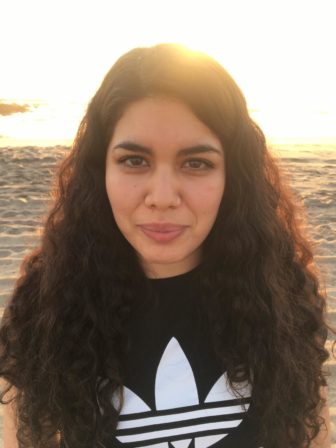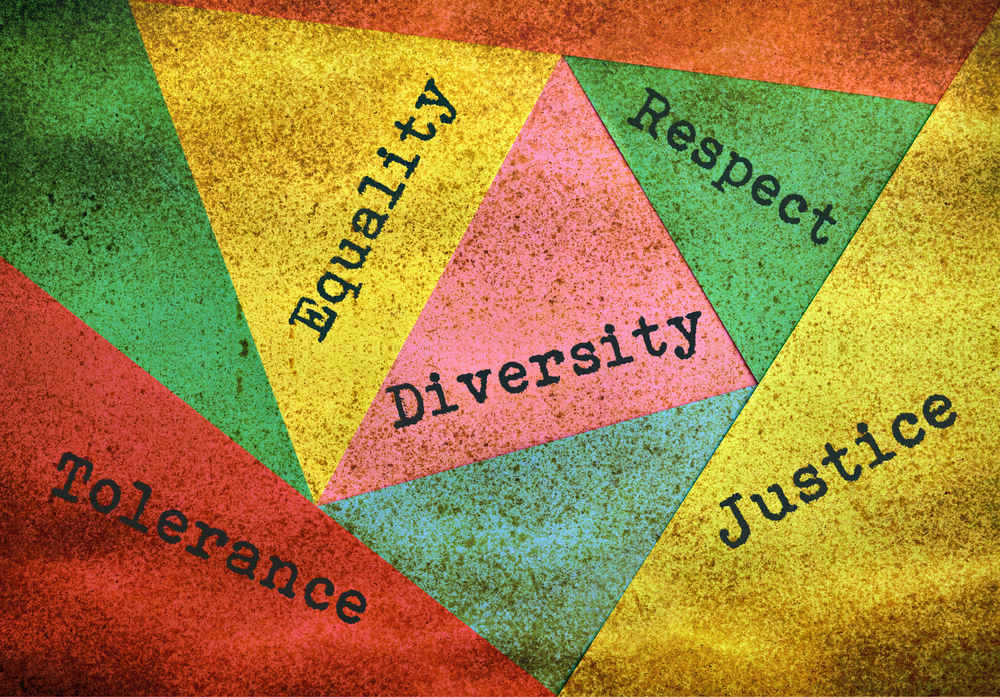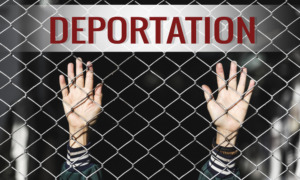Christine Alegre is a youth mentor for the Spirit Awakening Foundation, which serves incarcerated and formerly incarcerated youth with meditation, arts and other healing services. She is also a prison abolitionist.
Jimmy Recinos is youth editor for the InsideOUT Writers program, a creative writing organization for incarcerated and formerly incarcerated youth in Los Angeles. He works with IOW’s young adults to develop opinion articles on some of today’s most pressing issues.
Recently, the two sat down for a conversation as two mentors in the field to assess some of the major developments in progressive politics and how they may impact their respective collectives. The opinions expressed are those of the authors and do not represent the organizations they’re a part of.
J.R.: Just for the record, how would you describe yourself?

Christine Alegre
C.A.: I’m an empath to the max. I can empathize with the person and still understand that they’re wrong. I’m also not the most into everything that’s going on, but what I do know is that sometimes you gotta laugh about the sad things. We gotta laugh, because that’s how we cope, and maybe even how we move on … Forgiveness and laughter is cultural for me.
J.R.: What did you make of the phrase the first time you saw #MeToo?
C.A.: By the time it hit Facebook, I immediately thought of my own situation. I had just been at the convenience store with a friend when from out of nowhere some stranger that I’d never seen before came up from behind and put his hands on me. Before I could even process what had just happened, he ran away like a madman. At that moment I felt violated but knowing he was gone, all I did was laugh. I had to laugh and move on because as women we know unsolicited and unwanted attention is inevitable. It was that or I could cry, but sometimes the latter is too much for the moment.
When I saw the #MeToo hashtag though, what kept me from sharing was that I didn’t want to take away from more traumatic experiences with my mundane one. I don’t think #MeToo was just about saying “we’ve all been catcalled.” For me it was about saying: I understand you, sister.
J.R.: You stopped yourself from sharing, then, to give space to others, if you will.
C.A.: Although I liked that the conversations [#MeToo] generated were open to everyone, I also felt my experience wasn’t the same as that of other women’s. There were women sharing their #MeToos who had been raped or molested, and that’s not the same as being catcalled or harassed.
Every woman you’ve ever met has been catcalled.
At the same time, I also don’t think it’s very helpful for women to get online to make generalizations about men. I know that wasn’t the intention of #MeToo, but at least on my side, that’s what I saw much of it coming down to.
J.R.: It sounds like you appreciated certain aspects of #MeToo but also like you had some disagreements about the direction, mainly in how it came to describe something about men that, although resonant, wasn’t completely representative.
C.A.: My problem with where the me too movement has gone is that it’s including men but not in an inclusive way. If we want men to change we need to give them the space to do so by setting clear standards. Saying that all men are trash, for example, is inadvertently giving men permission to act like trash; in my opinion, it’s better to hold men accountable and create spaces for men to hold themselves accountable as well.
Apart from this, when I find out that #MeToo got really big because a white woman did what a black woman originally did, of course I’d have mixed feelings.
J.R.: What I hear you saying is that even “woke” campaigns have to be placed into perspective.
C.A.: After a while, when you keep up with campaigns like #MeToo you come to see that certain voices lead the momentum. Maybe that’s not the worst thing that can happen for a movement, but then when those voices got all these other people in agreement, what do you do with that?
A lot of people feel like sharing a video or hashtagging is doing something about things, and though it’s a part of the process, there’s just as much work out there for all of us to do. It’s hard to remember that in the moment of status update, especially now. We’ve made the internet into a shouting factory. It used to be all this free info, but now it’s a matter of navigating through what’s real and what’s fake.
J.R.: What else might the mainstream conversation be missing in its critique of gender inequality?
C.A.: For one, when the talking heads out there can’t even be bothered to recognize the work being done to combat issues like gender inequality by women of color who aren’t Hollywood actresses, I feel like it’s so last century. Why are white women still taking away from women of color when it comes to liberal America’s agenda? As a collective, how is [it] that we’ve allowed so little to change over the course of nearly 100 years?
What’s also true is that there should be more openness about what’s actually going on with everyone instead of shaming a select few people for getting caught. Yes, there are men out there with strange fetishes who are playing dangerous games with real human lives, but there are also women who do these things. That’s simplifying, but my point is: When exactly did we decide that anything sexual differing from “the norm” is supposed to be punished? I don’t have the answers to all these things, but I do think we can’t get very far if all we do is scapegoat the sexuality of “a few bad apples.” We need to discuss our assumptions about sexuality as a whole, historically.
J.R.: I wonder if the historical norms vary from place to place, depending on the time and environment. As a woman of color in a city as diverse as Los Angeles, do some of the more recent trends in awareness and activism give you reason to be optimistic about a greater balance of power between the different groups which make up our “collective”?
C.A.: Honestly, it varies. You gotta be optimistic to do this work. However, when I look at the lack of knowledge centered in so many of the “movements,” or how many people think they’re doing their part by sharing a video or adding a like … I get disheartened. These changes will not be made behind computer screens. These real conversations that need to be had, have them. Have them with family, friends, your kids, and then let that fuel what you do next. But do something, actively participate. Don’t just be an ally from behind the screen.
J.R.: Wait, did you even attend the Women’s Marches following the inauguration last year?
C.A.: I did not. When it comes to a march, the government can see that you’re there, but what else? The Black Panthers didn’t just make themselves seen. They showed the world how they could generate a completely self-sufficient system outside of government programming, and that’s what really scared big brother back for a moment.
J.R.: Should we expect more from the organizers of the Women’s Marches in 2018, or might it be time to move toward another group’s moment?
C.A.: I was never on board with the women’s marches to begin with. Even these marches, they weren’t inclusive enough. It’s a step backwards to see that you’ve got power but to do nothing about it. Saying let’s have a march to celebrate women is different from saying let’s all get out here to celebrate the different facets which make up our humanity right now, which includes way more than just one gender.
That said, of course there has to be exclusive space for different kinds of people, but I believe it’s still most important for our differences to be put aside in order for all of us to live together. That’s the kind of inclusiveness at the end of the day that we still aren’t working with.
J.R.: That reminds me of an interesting point I heard about the Democrats’ inclusiveness. What would you make of the contention that Democrats are only interested in immigration reform because immigrant populations tend to vote blue?
C.A.: Immigrants are more Democratic-leaning because they know how to live in a multifaceted society where everyone has a different role to play. Plus, a lot of immigrants don’t arrive here with arms full of money, so of course they could appreciate a helping hand. Republicans, on the other hand, are all about maintaining wealth in the hands of their nonimmigrant constituents. The jobs and tax cuts act spoke for itself this last year.
At the same time, I know many people whose parents are immigrants voted for Trump, and sometimes there’s no way of knowing how someone is gonna vote. It’s based on experiences as much as it’s based on beliefs.
J.R.: Given that, should we expect the Democrats to finally turn the page on immigration reform this year?
C.A: I feel like the debate has been so obfuscated that a lot of advocacy is about fighting for little pittances of progress. Of course young people who had no choice over their status should be given some protection. Instead, Republicans passed tax cuts for corporations, none of which are facing the threat of deportation or time in a detention center. It’s up to those of us doing out work out there to remember times like these, including how the Democrats stall.
At the end of the day change in our system will not come at the hands of the Democrats or the Republicans … it’s in the hands of the people. We also can’t look for one place to assign blame but rather we have to look at these systems as a whole. In the words of Angela Davis: Whenever you conceptualize social justice struggles, you will always defeat your own purposes if you cannot imagine the people around whom you are struggling as equal partners.
Christine Alegre, 25, is a youth advocate in Los Angeles. For those interested in hearing more, check out her first article for Youth Today.
Jimmy Recinos, 27, is a writer and editor in Los Angeles. To learn more about his work with InsideOUT Writers, check out his column, the first in this series.
































